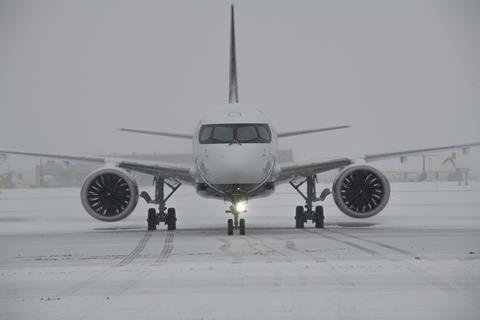Air Canada will cap fares and add 6,000 seats in “select markets” to assist passengers in the wake Lynx Air’s pending cessation of operations.
“The measures are to provide Lynx Air customers affected by the carrier’s shutdown affordable options in the economy cabin on Air Canada flights for travel within Canada, to the US and to Cancun in Mexico, so they can return home or make alternative travel arrangements for planned winter trips,” the airline said on 23 February.
The fares will be available for purchase before 26 February – the date Lynx has said it will stop flying – and travel must be completed by 2 April. That covers the March school break and Easter travel periods, when many Canadians travel to warm-weather destinations.

Canada’s largest airline says it plans to add incremental capacity on Lynx routes from Toronto and Montreal to Cancun and to US destinations Fort Myers, Orlando, Tampa, Phoenix and Las Vegas, between 25 February and 19 March.
But the airline also says it is already strapped for capacity.
“With the busy winter travel holiday period underway, flights are already relatively full and the carrier’s ability to increase capacity further is limited,” Air Canada says.
WestJet, Canada’s second-largest airline, said it is offering a 25% discount for economy fares on routes previously served by Lynx from 22 February to 26 October.
Calgary-based Lynx said earlier in the day it will end operations on 26 February, as it has become a victim of high jet fuel prices, the 20-month Boeing 737 Max grounding in 2019-2020, and the Covid-19 pandemic.
“Compounding financial pressures associated with inflation, fuel costs, exchange rates, cost of capital, regulatory costs and competitive tension in the Canadian market have ultimately proven too steep a mountain for our organisation to overcome,” Lynx writes on its website.
The start-up airline filed for creditor protection in Canada, and pledged to operate “most” of its flights through the weekend. It has directed customers who are booked beyond its final day of operations to seek flight refunds through their credit card companies.
According to court documents, Lynx owes C$124 million ($92 million) to Indigo Northern Ventures, the firm led by long-time airline investor William Franke that helped Lynx get airborne.
The carrier, an all-Boeing 737 Max operator, asked the court to issue an order halting legal proceedings against it, and also to authorise it to temporarily retain assets and to carry on its business. It seeks “an orderly wind down of operations while simultaneously maximising the value of [its] remaining assets”.
Earlier this week, Canadian media reported that Lynx was “in the final stages of” announcing a potential merger with ultra-low-cost carrier peer Flair Airlines.


























